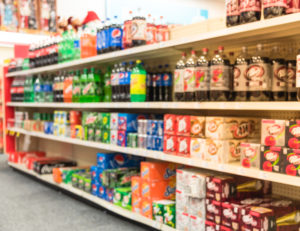
The Soda Tax in Court
This guest post was authored by Brandon Matsnev, a summer associate with Montgomery McCracken.
 The Philadelphia Beverage Tax, commonly referred to as the “Soda Tax,” has unleashed vigorous political debate. The legislation, implemented January 1, 2017, taxes soda distributors 1.5 cents per ounce of soda sold to retailers. While proponents of the tax point to additional funding the tax provides to support school programs, parks, and recreational centers, those in opposition argue the tax is crushing small businesses and consumers, to whom distributors shift the tax burden. With potential for a significant impact on the local economy, the City of Philadelphia and parties who opposed the tax have turned to the courts.
The Philadelphia Beverage Tax, commonly referred to as the “Soda Tax,” has unleashed vigorous political debate. The legislation, implemented January 1, 2017, taxes soda distributors 1.5 cents per ounce of soda sold to retailers. While proponents of the tax point to additional funding the tax provides to support school programs, parks, and recreational centers, those in opposition argue the tax is crushing small businesses and consumers, to whom distributors shift the tax burden. With potential for a significant impact on the local economy, the City of Philadelphia and parties who opposed the tax have turned to the courts.
In April, the Commonwealth Court of Pennsylvania heard oral arguments regarding the legality of the tax. There are three main issues, all involving one question: who pays the tax? This case came before the Commonwealth Court on appeal from a decision by Judge Glazer of the Philadelphia Court of Common Pleas, who upheld the tax in December 2016. In a decision issued June 14, 2017, the Commonwealth Court affirmed.
The first argument set forth by the Plaintiffs, led by the American Beverage Association, was that the tax violates the Sterling Act’s prohibition against double taxation. The Sterling Act gives cities taxing authority as long as the taxed item is not already taxed by the Commonwealth. The Plaintiffs argued that the Soda Tax on top of the state sales tax is double taxation. That is, consumers ultimately pay both because distributors pass costs down to them. Judge Glazer found the true economic impact irrelevant to the application of the Sterling Act. Even though the tax may raise the price paid by the consumer, it is a tax on the distributor for the act of distributing soda and not on the consumer. The Commonwealth Court agreed, stating, “a tax’s ‘operation or incidence’ refers to the substantive text of the ordinance and does not concern the post-tax economic actions of private actors in response to the imposition of the [Soda Tax].”
Plaintiffs’ second argument was that the Supplemental Nutrition Assistance Program (“SNAP”) preempts the Soda Tax. For states to participate in SNAP, they are prohibited from taxing the eligible grocery items. The Plaintiffs argued that the Soda Tax violates this prohibition and is therefore preempted by SNAP. Judge Glazer and the Commonwealth Court disagreed, reiterating that the tax is not imposed on soda sales at the retail level but, rather, is imposed on the distributor.
Lastly, Plaintiffs argued that the Soda Tax violates the Uniformity Clause of the Pennsylvania Constitution. The Uniformity Clause requires that a tax be uniform for all those who pay it. Plaintiffs said the tax is unconstitutional as a property tax because it is based on quantity rather than value and thus imposes uneven burdens among distributors. For example, a distributor who sells small quantities of extremely high cost beverages could pay much less in tax than one who sells large quantities of very cheap beverages. The Commonwealth Court, however, rejected this characterization. The Soda Tax is more like an excise tax than a property tax because it taxes the privilege of distributing soda—not soda as a property. For that reason, the tax may be based on volume rather than value.
Request for an appeal to the Pennsylvania Supreme Court is sure to follow. Other cities, including Seattle, have recently enacted similar taxes. It is therefore likely that a legal resolution in Pennsylvania will play a significant role in framing the issue nationally.
Though the future of the Soda Tax is uncertain, local businesses are feeling the tax’s effects. Some companies have reported a decrease in sales of soda attributable to the tax—as high as 50%. As a result of the decrease in revenue, those involved in the bottling, sale, and distribution of soda are turning to cost savings by cutting jobs. PepsiCo said it will lay off nearly a quarter of its local employees, and ShopRite said it will fire 300. If the tax is upheld, it could continue to have serious implications on the local beverage industry for the foreseeable future.
